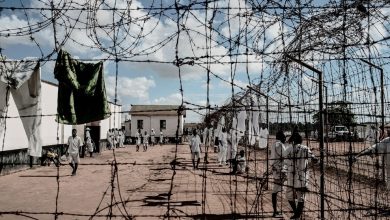‘My bottle more than half empty’
Dear Mr President,
I would like to agree with George Kasakula who did not see much reason of celebrating last week.
Perhaps we should have just observed the day quietly as the majority of the citizens did.
Mr President, I agree that Kamuzu Banda constructed the road along the lake, moved the capital to Lilongwe, and set up Unima, three development projects from his Gweru dream.
After this, the Ngwazi became brutal. His four cornerstones of loyalty, obedience, unity and discipline became the source of misery for many.
The population was taught to fear, revere and be subservient to the Ngwazi. Everything belonged to him, including people’s spouses. Who dared stop a mbumba from attending the Ngwazi’s function? Who dared refuse to buy the party card even if you had several?
Yes, there was peace and calm, law and order, but wasn’t most of it out of fear of loss of life or imprisonment? How many Malawians with dissenting views were detained?
Lots of young people with creative brains remained silent for fear of being killed.
This period, I repeat, is 3/5 of the 50 years we are celebrating, and thus I have to say my bottle is 3/5 empty!
You are talking of population explosion as an aspect of development. This is strange when all you see around are underfed school-going children in tattered shorts playing in the mud when their rich counterparts are attending nursery or primary school.
They cannot afford fees or clothes. If you live in the village, children will tell you they can’t go to school because their clothes – usually torn – are not clean.
When politicians talk of free education, they do not know what some of us see. The rhetoric is good for the UN/Unicef to hear.
The standard of education has gone down.
Here is a real-life example from our own public broadcaster. If you press ‘I’ on channel 295, this is what you read:
MW TV
Malawi TV provides information on various important issues, the programs
broadcasted on TVM (Malawi TV) helps in spreading awareness among the people regarding news, general entertainment, health, etc
Such glaring errors should not be appearing on a public television.
In your speeches you have stressed unity, saying, after Kamuzu, that we are all one and yet if I went to hospital today or to a police station, they will ask me what my tribe is as if my ailment or crime were the result of the tribe I belong.
Mr President, details like these might help people forget they belong to a tribe and make them proud to be described simply as Malawian.
There have been allegations of fraud, treason, murder and similar serious crimes against prominent citizens of this nation. Cases brought to court have hitherto not been concluded. Governments have changed hands, but we, the citizens, are still waiting to see justice done.
What we see are changes made by the heads of State in the top positions in government. This trend contradicts the view that Malawi is for all to serve. Politicians come and go but administrators and institutions should not be tampered with because those appointed then focus on pleasing the appointing authority rather than on serving the nation.
Since the trend still persists, my bottle is half empty.
Mr President, you will have noticed that I have not addressed you as professor president. I do not mean to disregard your academic success.
It is just that my British teachers taught me that the term ‘professor’ is used only for members of the highest rank of university teachers. Since you are now outside university corridors, I thought it might not be the correct form of address.
But since you are still professor, may be this is why you refer your audiences to the Internet to read your speeches in full.
But referring your audience to published material may have worked in a university set-up where there was a library and Internet facilities. But here in Malawi the majority of the population you are addressing can’t even read and few have access to modern technology.
Finally, I feel instead of celebrating success, we should be reflecting on areas which are still far from being developed: education, health delivery and integrity as well as statesmanship.
Martin Nyirenda


